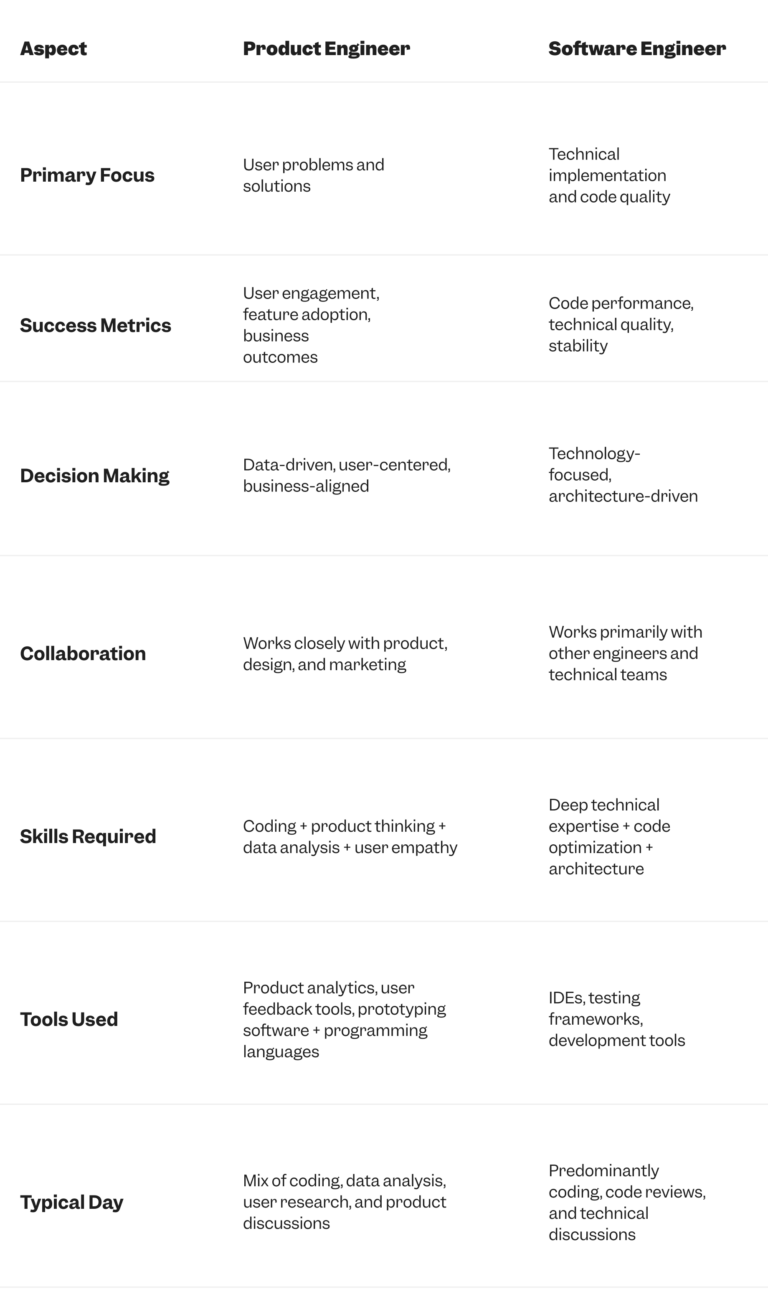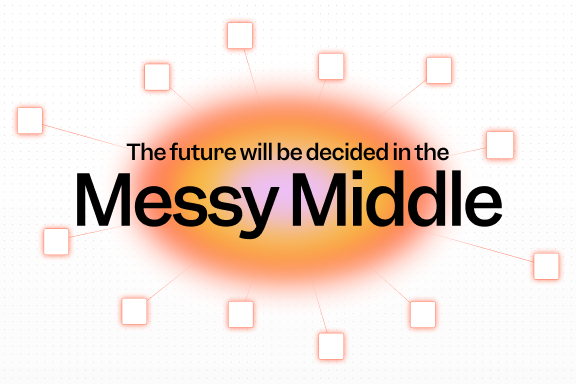
From code to customer impact: The rise of the product engineer

A product engineer is a technical professional who bridges the gap between software engineering and product development. They combine strong coding skills with product thinking, user empathy, and data analysis capabilities to build features that directly address user needs. Unlike traditional software engineers who may focus primarily on technical implementation, product engineers are deeply involved in understanding user problems, analyzing user behavior, and making product decisions based on data and user feedback.
Product engineering has seen an upswing in popularity in recent years, with an increasing number of people searching for the term “product engineer,” according to Google Trends.
On the surface, “product engineering” is pretty similar to the previously more commonly used job title, “software engineering.” Both roles require coding skills and problem-solving abilities. People in these roles often have similar educational backgrounds. So why the shift?
To answer that question, let’s talk about what product engineers are, how they’re different from traditional software engineers, and the skills that product engineers need to be successful in their roles.
What is a product engineer?
A product engineer is a type of software engineer who works on your company’s product. Here at Mixpanel, we differentiate them from infrastructure software engineers, who focus on making sure our system is scalable and reliable. For the sake of this blog post, we’ll call product-focused software engineers “product engineers,” and infrastructure-focused software engineers “software engineers.”
Product engineers and software engineers have different focuses and different skill sets (which we’ll get into in more detail below). Product engineers work closely with product managers and designers—in some cases, they can take on the role of product managers and help guide product decisions.
Most importantly, product engineers have a lot more interaction with customers. They spend a significant part of their time interviewing customers, looking at customer feedback, and analyzing product data to understand what customers need and how to create a better product that meets those needs. Their work has a strong qualitative component.
As product engineer and Mixpanel Technical Lead Manager, Sonya Park, puts it:
“The crux of being a product engineer is synthesizing customer input to create a solution, while still maintaining a good return on investment for the solutions that we create.”
Product engineer vs. software engineer: What’s the difference?
Product engineers and software engineers have different priorities and skillsets. A software engineer will often look at problems from an ROI perspective: How can I maintain or improve the system we have for less cost? How can we streamline or optimize our tech stack? How can we solve this bug or simplify this process most effectively?
Product engineers also need to keep costs in perspective, but they balance those needs with providing the best possible customer experience. “It’s a balancing act between understanding what the customer wants and understanding, within our engineering capacity, what’s the best thing that we can do for the customer,” Park explains.
Software engineers often work alone and spend the majority of their time writing code, fixing bugs, and deploying updates.
Product engineers, on the other hand, work in collaboration with PMs and product designers. They often participate actively in the ideation process to help shape experiments and influence the roadmap.
For example, Park starts most of her days reviewing customer feedback and product data to understand how they are interacting with recent product updates, before writing any code to build the product. She’ll look at recent signals collected from customers to understand their biggest pain points and work with her team to understand which ones are worth prioritizing.
Here’s a table explaining some of the key differences between product engineer and software engineer roles:

Product vs. software engineer: How to decide which path is right for you
Now that we’ve covered a few of the differences between the jobs that product engineers and software engineers do on the day-to-day, let’s talk a bit about who should choose one path or the other.
For Park, one of the most important skills a product engineer can develop is empathy. “If you talk to customers and you aren’t able to empathize with customer pain points, you’ll end up overlooking what they need and making a solution that doesn’t fit,” she says.
She also believes that product engineers need strong follow-through. “What sets a good product engineer apart from a great one is the ability to continuously check in and say, ‘Okay, how is this product doing? How can I keep this alive for the long term?’ Otherwise, you risk shipping something that has great initial reception, but within a few months, no one is using it.” The drive to iterate and monitor how your product is doing is crucial for success in the role, she says.
It also helps product engineers to have a good eye for design and a sense of when things look nice, Park says, and helps to create visually appealing products.
On the other hand, someone who is very numbers-driven might be more attracted to software engineering. “If you’re someone who derives a lot of satisfaction from seeing numbers go up and down, then product engineering might not be the best fit for you, because a lot of the signals we look at are qualitative,” Park says. In the same vein, she cautions people who like clear-cut, compartmentalizable tasks that product engineering might not be for them. “Product engineers have to synthesize many different factors and look at the overall user journey and user experience,” she says.
Essential skills for successful product engineers
Product engineering requires a unique blend of skills. If you’re interested in pursuing product engineering, here are a few areas you should focus on to strengthen your resume.
Technical skills
Mastering product analytics tools and user feedback software is helpful for product engineers who want to understand how customers think, feel, and behave. Being able to use tools like session replays or heatmaps to understand that data is especially useful.
User empathy
As we mentioned above, one of the most important traits for product engineers is empathy and an ability to understand customers. Building your interview skills so that you can lead a conversation and probe into pain points is also useful. More than anything, Park encourages product engineers to cultivate “a genuine curiosity about people”.
Data analysis
Being able to use product analysis tools like Mixpanel to understand product and user data is crucial for product engineers. These tools give engineers a holistic view of user experience, which allows them to make smarter product decisions.
How product engineers use data and analytics
Data is one of the most valuable tools in a product engineer’s arsenal, and knowing how to analyze and use that data to make informed decisions will be a huge asset to any product engineering career.
For example, Park, who leads the data governance team, uses cohort analysis to understand different user personas, see who the power users are, and understand how different user groups behave. She also frequently conducts user flow analysis to understand user journeys and how they move around within Mixpanel.
Product analytics also helps her team tie specific signals to business outcomes. “If a project has four or five data governors, that’s usually a good sign that that account might want to upgrade, for example,” she explains.
More broadly, event-based tracking, which records each action a user takes within your product as a separate “event,” is a valuable tool for making feature decisions. It can give you insights into which features users are engaging with and help you spot potential issues or technical problems more quickly. It can help decide which engineering projects to prioritize.
Transitioning to product engineering
If you’re already advanced in your software engineering career and thinking about making a transition, deepening your understanding of product analytics and working more closely with product teams can help you shift your career in that direction. Check out our blog post on how to be the go-to engineer for product analytics for more information.
To see how Mixpanel helps product engineers make data-driven decisions, try it today for free.


